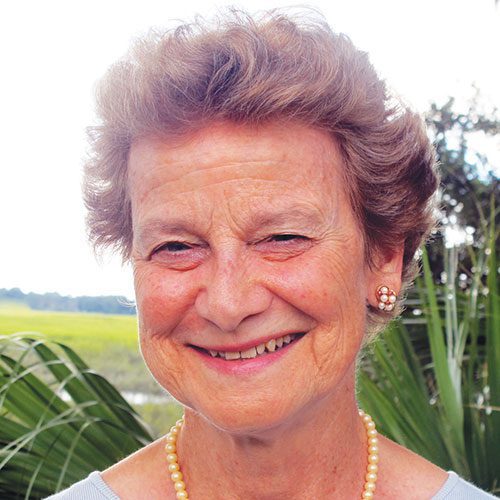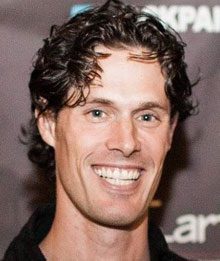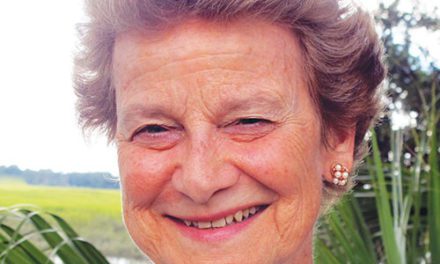On the evening of March 4th I joined a zoom that I quickly realized was far beyond the scope of the author discussion I’d anticipated. Since the event was presented by Beaufort’s Pat Conroy Literary Center, I shouldn’t have been surprised, for its director, Jonathan Haupt, keeps pulling aces – literary and otherwise – from his sleeve, as offerings continue to get better and better. Besides, this was the opening presentation of March Fourth, the center’s fifth annual memorial to the South Carolina Lowcountry’s Pat Conroy, beloved by those who knew him well enough to have experienced his generosity of spirit, and by scads who wished they’d met him, whose introduction occurred only through his melodious verbiage.
Bottom line is, I should have known this year’s opening event would knock it out of the ballpark. And though only an hour long, the evening did not disappoint.
On a surface level the objective would seem to have been promoting a new book by New York Times best-selling author Bruce Feiler. One of the country’s most popular voices on family, faith, and finding day-to-day meaning in life, he also penned Council of Dads and Walking the Bible, both adapted as TV series. His latest volume is Transitions: Mastering Change in a Nonlinear Age. Talk about a timely topic. Especially after the year that brought life as we’d known it to an unexpected halt.
For the first few months of the stay-at-home decree, the buzz became all about “when things get back to normal.” The assumption was that they would. And when that happened, life as we’d known it could resume. But to quote Scotland’s romantic poet Robbie Burns, “The best laid schemes of Mice an’ Men Gang Aft Aglay.” And have they ever. Big time change for many of us was inevitable, and the topic under discussion was transition.
Blessed with an outgoing, larger-than-life personality, Feiler knows his stuff inside out and can chat about it till the cows come home, which he has done at numerous TED talks. The balance thrown into that equation came from his interviewer and – because this was far from just a Q and A – compatriot in conversation, Rev. Patrick Perryman, pastor of Beaufort’s First Presbyterian congregation. As I’d signed up for the evening a month or so beforehand and tuned in right after introductions had been made, I of course identified Feiler immediately, but had missed the name of his Conroy Center host. As soon as Dr. Perryman began speaking, however, I knew exactly who he was. Several of his flock have mentioned his remarkable wisdom, strength and calm demeanor to me, and they were right.
Within the first five minutes, I was taking notes. The back-and-forth discourse was that good and that practical. This stuff, I thought, might really work.You can still watch this event on Youtube.com. Tune in and see if you agree.
Keeping in mind that I’m always likely to side with the optimistic viewpoint, I believe that much of the transition currently transpiring can be positive if enough of us focus on that outcome. A quote from the aforementioned stellar event transported me back in time. “We need to come back together and love each other.” As a child of the ‘60s, I immediately recognized the language of my teens and 20s and gave a virtual fist-pump. At that time we of a certain age grooved to a song recorded by The Youngbloods, called “Get Together.”Its chorus makes me wish it could be required listening. “Come on people now/Smile on your brother/Everybody get together/Try to love one another right now.”
That message isn’t new. For centuries the majority of spiritual traditions have embraced it as the key to unlocking a well-balanced, well-lived life. Just for clarity, I’m not talking about romantic love here. Not the free love once rampant in 1967’s hippie days’ Summer of Love in Haight-Ashbury. This love originates in the soul.
Much of 13th Century Persian Sufi mystic Rumi’s poetry is woven around love. According to A Course in Miracles, a self-study curriculum for spiritual transformation, love is the only thing that’s real. In the Christian tradition, the Ten Commandments proclaimed it and Jesus lived it. This expansive, gut-level love opens its arms wide enough to encompass loving family and friends, of course, but also humanity at large, whether or not certain individuals embrace your beliefs, are members of your race, speak your language, or honor your culture. And most important of all, you mustlove yourself first and foremost, which can be a tough call for many folks. You have to love yourself before you can fully love others. Yes, it’s a cliché, and for good reason. As much as possible, you must take care of yourself and your health – physical, mental, emotional, and spiritual – in order to be fully present with others. Barring emergencies, natch.
In a recent interview, Oprah asked actor Andra Day, star of the important new movie The United States vs. Billie Holiday, what she noticed about herself during Covid-directed stay-at-home time that she might want to change. Without missing a beat, Day replied, “Keeping my word to myself. I try to consider myself an honest person, but I’ll be the first person I’ll break my word with and I hate that. I’m making strides toward it.”
Wish I didn’t understand what she meant. A piece of advice I’ve been offered by those who know my propensity for over-scheduling from wanting to “do it all” (which can be the downside, by the way, to unbridled curiosity). “Girl, put yourself on your calendar.” Untold numbers of times, I’ve actually spotted a vacant date square, circled it and added my name in color, followed by “My Day.” Excitement builds as I think of how I’ll use that time. With so many options I feel as lighthearted as a spring foal romping in Kentucky bluegrass. But as the anticipated date draws ever near, bright shiny objects pop up, and I’ll often succumb, promising myself that the next time, I’ll really take a day just for me.
Because polite society would have us put others’ needs before our own, it’s easy to keep putting ourselves last. Revered author of The Artist’s Way, Julia Cameron, offers a solution called an artist’s date. The concept is simple – set aside a block of time each week, say, two hours, to nurture your creative consciousness. Realizing that we’re all creative in one way or another, don’t let that phrase “artist’s date” serve as an excuse not to be true to yourself.
The thing is, you must commit to this and do it alone. Just be with yourself and be present in the time allotted. Take a solitary toes-in-the-sand beach walk at sunrise or sunset, explore the Cypress Wetlands in Port Royal, set up a chair on the Bluff and savor an Herban Market black bean burrito while gazing at boats bobbing on the bay, or take a backroad drive to the South Carolina Artisans Center in Walterboro and ogle the art.
Life is indeed in the transitions. Take a deep breath, set aside “you” time, and revel in the results!







